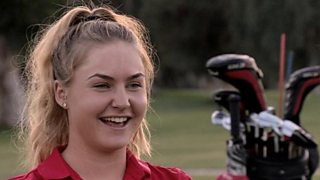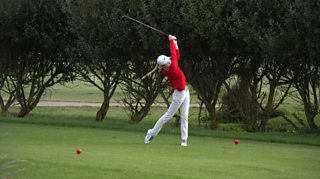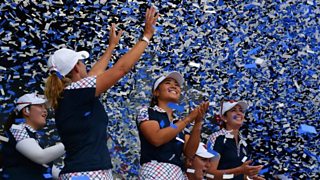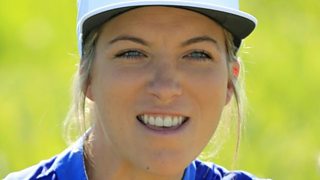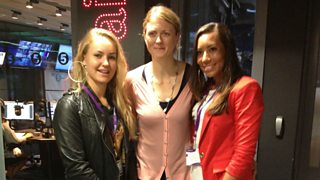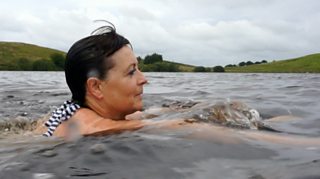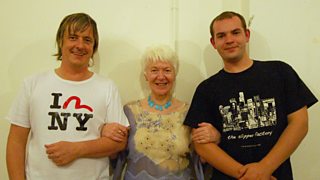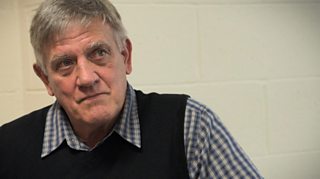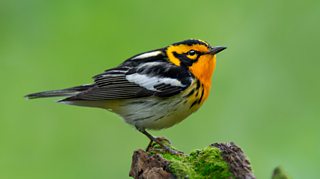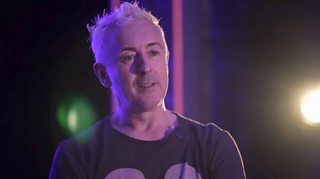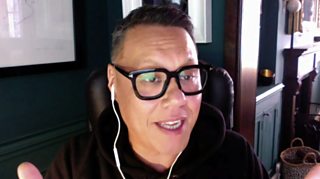Golf is supposed to be a sport for everyone вҖ” so why, in the professional game, do women still struggle for equality?
16 July 2018
The world’s best male golfers are descending on Carnoustie for the The Open.
The Women’s British Open follows a fortnight later.
Though there remains some way to go before financial equality is achieved between male and female golfers, there has been progress in equalising the standing of female players and their tournaments relative to their male counterparts.
- Royal and Ancient Golf Club chief: golf ‘has to change’
The African American women golfers fighting discrimination
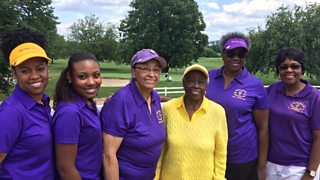
Wake-Robin Golf Club, in Washington DC, was founded in 1937 and is the oldest African American women’s golf club in the USA.
The club was formed during the era of racial segregation and its members pushed for the desegregation of public courses. Instead, their course was built on an abandoned rubbish dump.
“They had to play over glass bottles and cans,” explained club chaplain Elizabeth Brabble. “It’s not so bad that the course was put on a trash dump. But, as far as [the authorities at the time] were concerned, we were trash — so that’s all we ‘deserved’.”
That members were female only added to the discrimination the club faced.
Now celebrating its 80th anniversary, Wake-Robin Golf Club is thriving and promotes inclusiveness and diversity in women’s golf.
вҖңI could out-drive the majority of themвҖқ
When professional golfer Anya Alvarez was younger, she had to deal with male prejudice whenever she played golf.
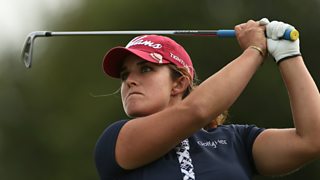
Guys didnвҖҷt want to play with me because I was a girl.Anya Alvarez
Her golf professional father always encouraged Anya to pursue the game as far as she wanted to take it, but negative body language and comments like “you’re not bad... for a girl” from other men gave her the impression that there were limits on how good you could get if you are female.
The landscape has changed since then, however. The Augusta course in America – which once said it would never host a women’s event – is now a venue for matches involving young female golfers.
“It’s a great thing for girls to show that they are welcomed in a game that was at first not very welcoming to them.”
On the shoulders of those who came before us
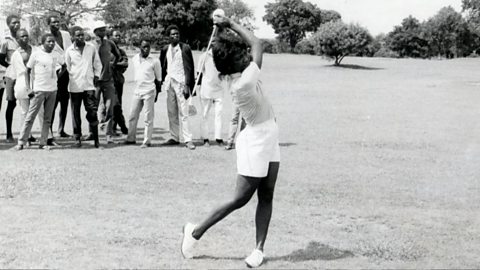
WomenвҖҷs golf pioneer who faced death threats
WomenвҖҷs golf pioneer who faced death threats
African American golfers were still subject to discrimination in the 1960s, which made Renee Powell an even more important pioneer in the sport.
She was there in the heart of racism and discriminationElizabeth Brabble
Renee joined the Ladies’ Professional Golf Association (LPGA) tour in 1967. She was only the second African American woman to play golf professionally.
She received death threats and was so shaken the first time that she phoned her parents for advice.
When they elected not to summon her home, Renee came to the conclusion that the risk wasn’t great enough to give up her dream career.
Her involvement on the LPGA tour until 1980 resulted in a lot of respect from within the African American community, who admired the way Renee dealt with the cruelty she experienced.
- (womensgolfjournal.com)
вҖңI think itвҖҷs leveling out nowвҖқ
Scottish golfer Hazel MacGarvie hails from the golfing town of Troon and has had a passion for the sport since she was little.
Despite the resistance of some well-known golf clubs to the idea of female members, Hazel has enjoyed a more positive experience.
“There are a lot of female members at my golf course who are all really supportive.”

Hazel sees the changes coming through in tournament golf and believes that the European Championships – where men and women play alongside each other, vying for a similar prize pot – is a great thing.
“In the past there have probably been more opportunities for male golfers but I think that’s leveling out now.”
WomenвҖҷs golf вҖ” not yet equal with the menвҖҷs game
Latest features from ҙуПуҙ«ГҪ Scotland
-
![]()
'Wild swimming helps me process the grief of losing my son'
The benefits of cold water therapy.
-
![]()
Winter adventures are appealing, but an expert advises caution
Trips in winter require particular knowledge and skills.
-
![]()
The rescuers: Why volunteers risk their lives in mountain emergencies
Landward meets members of the Cairngorm Mountain Rescue Team.
-
![]()
вҖҳLook for the lightвҖҷ вҖ“ practical tips to help you through another winter with SAD
Useful advice and tips to combat low moods at this time of year.
-
![]()
How you could be a binge drinker without even knowing
Binge drinking is classed as fewer units than many people may realise.
-
![]()
How chocolate biscuits and drama classes helped one man leave prison behind
The healing power of creativity.
-
![]()
'When people believe in you, itвҖҷs life-changing'
Author Graeme Armstrong revisits the man who helped turn his life around.
-
![]()
The 'breath-taking' display of US birds swept on to British soil
Recent storms have brought rare birds to our shores.
-
![]()
Six things we learned about Alan Cumming on Take the Floor (Spoiler: includes accordions)
The actor spoke to Take the Floor's Gary Innes.
-
![]()
How street gangs trap young men in a dangerous cycle of violence
The almost inescapable pull of life in a gang.
-
![]()
Why stylist Gok Wan believes there's no such thing as bad fashion
The fashion expert says we should stop following rules and do what feels right.
-
![]()
Is sending a CV still the right way to apply for a job?
They've been central to job applications for years, but are they worth it?
